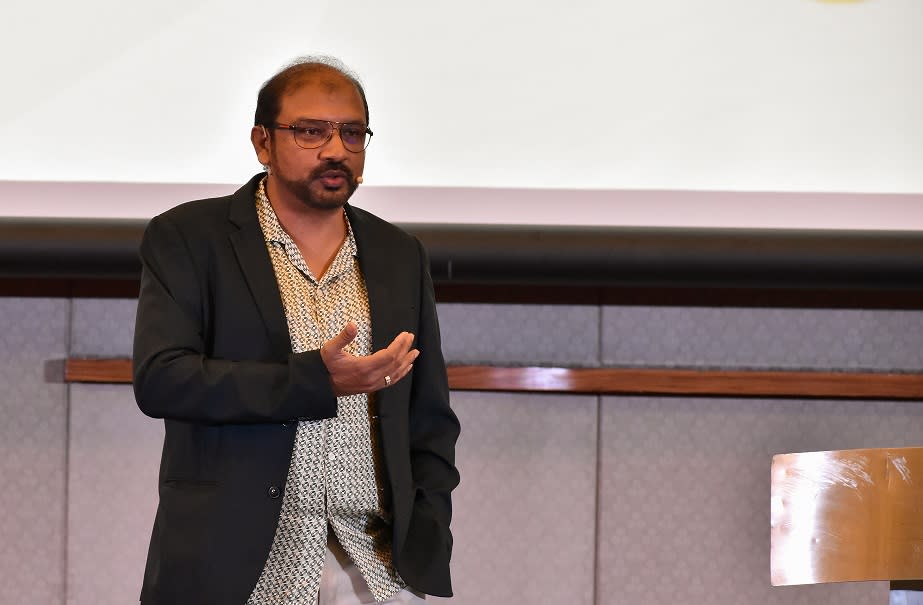Drug, alcohol abuse among Malaysian professionals is ‘especially prevalent’

A medical professional overdosed twice but is today a successful lecturer. Another of Professor Dr Prem Kumar Shanmugam’s patients was so “out of it” that he once threatened to kill him. Today, that patient is a leading researcher.
Unfortunately, these are not isolated cases, as more and more professionals in Malaysia suffer from some form of addiction. Ironically, it took the Covid-19 pandemic to expose the severity of the problem.
But what causes a professional to become addicted to a substance, be it drugs or alcohol? Simply put, these items are easily available, and are relatively cheap. No one realises they have a problem until it is too late.
It is beyond genetics or disease. It is now a psychosocial factor, as drugs and alcohol are more freely available – with more choices, and cheap.
“Some professionals take them, as they think it helps them function. There are cases of doctors who take methamphetamines to help them stay alert or awake when they are on call for two to three days,” said Prem Kumar (main image), an expert in evidence-based addiction treatment and research.
“It is especially prevalent among youngsters who may not be as resilient or disciplined. They are not used to this lifestyle and look for shortcuts to function.
“Some will take a cocktail of uppers and downers – uppers to help them stay awake for a few days, then after their shift, downers, such as sleeping pills, to help them sleep.”
That vicious cycle wreaks havoc with a person’s brain, and it won’t be long until they are addicted, added the founder and chief executive officer of Solace Asia, a private rehabilitation centre in Kuala Lumpur.
Prem Kumar also said there is no “one-size fits all” approach to treatment, and applauded the government for acting to amend the Drug Addicts (Treatment and Rehabilitation) Act 1983, so that prison sentences for drug abuse offences can be changed to drug treatment and rehabilitation programmes.
Home Affairs Minister Datuk Seri Saifuddin Nasution Ismail said in May that he would present the amendments in the next Dewan Rakyat sitting.
The second sitting begins today, June 24, and goes on until July 18.
“When addicts are in jail, they don’t have access to the substances, but the moment they are out, they start looking for them,” said Prem Kumar.
“They can abstain for a while, but if they don’t receive treatment, they won’t know how to stay away.
“If something triggers the addicts, they might fall back into the same cycle. That is why it is better to treat them, instead of throwing them in jail.”
Separately, Prem Kumar said that when Covid-19 hit in 2020, he thought it would affect Solace, as no one would come to his centre.
Instead, it revealed the severity of addiction among professionals.
“Many people realised that being ‘stuck’ at home gave them a chance to seek treatment, as they couldn’t get their hands on the items they were addicted to,” he said.
“We also started the Employee Assistance Programme (EAP) to provide virtual therapy and counselling for staff of companies.”
Prem Kumar, who was addicted to alcohol until he was 33, said he had hoped EAP would help supplement Solace’s income during the pandemic. But its success surprised even him. Today, the service covers 350 companies in Malaysia and is available in Thailand and the Philippines.
One reason for this is that it removes the stigma associated with addiction.
When companies started buying EAP packages, it gave their staff access to specialists and counsellors who would listen to their problems.
“We found a large number of employees suffered from substance abuse problems. They couldn’t inform their HR (human resources department), or talk to a professional, as that costs RM250-500 per visit. Besides, that alone won’t stop them from taking drugs or drinking,” said Prem Kumar, who credits his family for rescuing him from the streets and turning his life around.
“But because we have a confidentiality agreement, the employees opened up to us. We were shocked to learn that a large number of them were addicted to substances.”
To address the elephant in the room, Solace encouraged companies to conduct workshops and programmes to help de-stigmatise the issue within organisations. Prem Kumar said the companies embraced the workshops, and found that staff retention was higher, absenteeism was lower, and that they functioned better.
“Anyone can overcome addiction. I am proof of that. I was sleeping on the streets and had no future when I was in my 30s,” said Prem Kumar.
“I had liver failure, but in hospital, a doctor told me that my addiction was an illness of the brain. It was then that I realised I could turn myself around. With the help of the doctor, I have stayed sober for 20 years.”
He returned to school, earned his degree, married, and has two children.
“My experience has helped me connect with addicts, as they know I have been in their shoes,” said Prem Kumar.
“In recovery, we say ‘to keep it, we have to give it away’. I have to share my experience with others, so that my recovery becomes better.”
The post Drug, alcohol abuse among Malaysian professionals is ‘especially prevalent’ appeared first on Twentytwo13.


